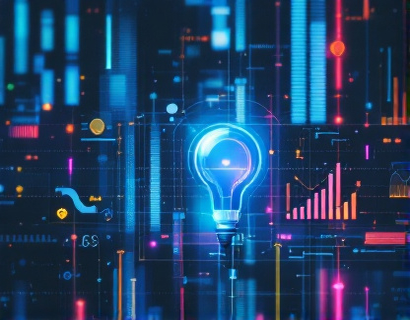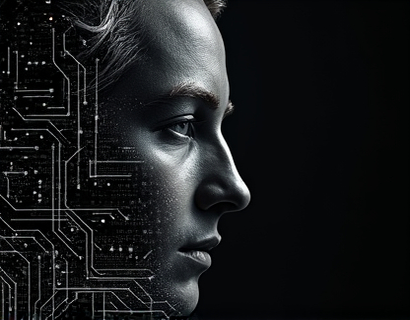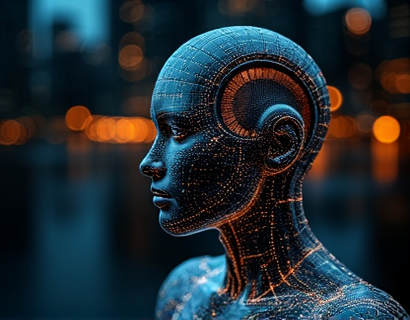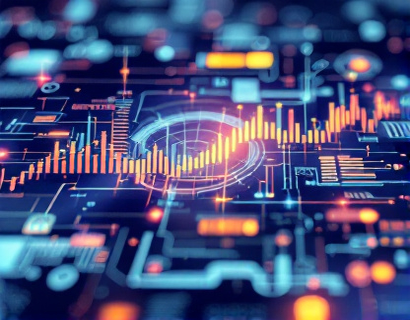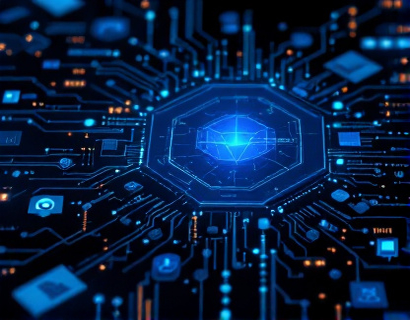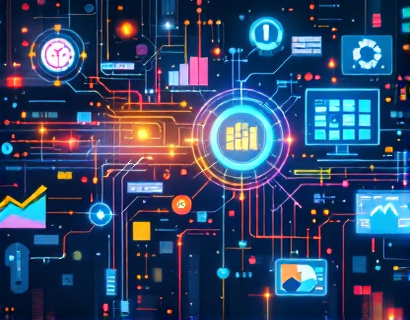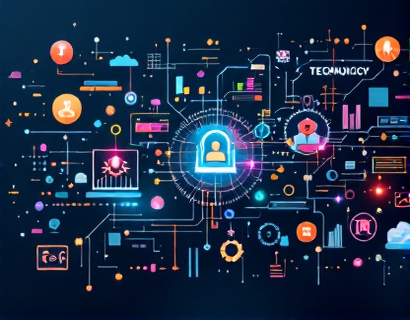Revolutionizing Digital Experiences: The Synergy of Crypto and AI in the Blockchain Era
The intersection of cryptocurrency and artificial intelligence (AI) is ushering in a new era of digital transformation, redefining business operations and enhancing user experiences across various industries. This article delves into the profound impact of this fusion, providing a comprehensive guide for tech leaders aiming to navigate and thrive in the blockchain era. By exploring the synergies between these cutting-edge technologies, we aim to illuminate the path forward for innovators and early adopters eager to harness their potential.
Understanding the Basics: Cryptocurrency and AI
Cryptocurrency, a digital or virtual currency secured by cryptography, operates on a decentralized network known as blockchain. This technology ensures transparency, security, and immutability, making it an attractive foundation for various applications beyond mere financial transactions. On the other hand, AI refers to the simulation of human intelligence processes by machines, particularly computer systems. These processes include learning (the acquisition of information and rules for using it), reasoning (using rules to reach approximate or definite conclusions), and self-correction. When combined, these technologies create a powerful toolset for innovation.
The Fusion of Crypto and AI: A New Paradigm
The integration of AI with cryptocurrency is not just a technological curiosity but a strategic necessity for future-proofing business models. AI can enhance the efficiency, security, and user experience of blockchain-based systems. For instance, machine learning algorithms can optimize blockchain networks by predicting and mitigating potential bottlenecks, thus improving transaction speeds and reducing costs. Moreover, AI-driven analytics can provide deeper insights into user behavior, enabling more personalized and secure interactions within blockchain ecosystems.
Enhancing Security with AI
Security remains a paramount concern in the realm of cryptocurrency. AI technologies can significantly bolster the security of blockchain systems by detecting and preventing fraudulent activities. Machine learning models can analyze patterns in transaction data to identify anomalies that may indicate malicious behavior. For example, AI can monitor for unusual spending patterns or suspicious login attempts, triggering alerts and automated responses to mitigate risks. This proactive approach to security not only protects users but also builds trust in blockchain applications.
Optimizing Blockchain Performance
Blockchain networks, while robust, can suffer from scalability issues and high energy consumption. AI can address these challenges by optimizing network operations. For instance, AI algorithms can dynamically adjust consensus mechanisms based on network conditions, ensuring optimal performance and energy efficiency. Additionally, AI can facilitate the development of more efficient smart contracts by automating the optimization process, reducing the likelihood of errors and enhancing execution speed. This synergy not only improves the technical aspects of blockchain but also makes it more accessible and viable for widespread adoption.
Personalization and User Experience
The user experience in blockchain applications can be significantly enhanced through AI-driven personalization. By analyzing user data and behavior, AI can tailor services to individual preferences, making blockchain applications more intuitive and user-friendly. For example, in decentralized finance (DeFi) platforms, AI can recommend investment strategies based on a user's risk tolerance and financial goals. This level of personalization not only improves user satisfaction but also increases engagement and retention, crucial factors for the success of any digital service.
Smart Contracts and AI: A Powerful Combination
Smart contracts, self-executing contracts with the terms directly written into code, can be further empowered by AI. AI can enhance the functionality of smart contracts by enabling them to make decisions based on complex data inputs and real-time conditions. For instance, in supply chain management, AI can integrate with smart contracts to automatically trigger payments when specific conditions are met, such as the arrival of goods at a designated location. This automation reduces manual intervention, speeds up processes, and minimizes the risk of errors.
Data Privacy and AI
Data privacy is another critical area where AI and cryptocurrency intersect. Blockchain's inherent transparency can conflict with the need for data privacy. AI can help strike a balance by implementing advanced encryption techniques and zero-knowledge proofs, allowing for verifiable computations without revealing sensitive information. This ensures that users can benefit from the transparency of blockchain while maintaining control over their personal data. AI-driven privacy solutions are essential for building trust and compliance with regulatory standards in the blockchain space.
Market Predictions and AI
The cryptocurrency market is notoriously volatile, making accurate market predictions challenging. AI can provide valuable insights by analyzing vast amounts of data, including historical price movements, market sentiment, and macroeconomic indicators. Machine learning models can identify patterns and trends that human analysts might miss, enabling more informed investment decisions. For financial institutions and individual investors, AI-driven market analysis can be a game-changer, offering a competitive edge in the dynamic crypto market.
Case Studies: Real-World Applications
Several real-world examples illustrate the successful integration of AI and cryptocurrency in blockchain applications. One notable instance is the use of AI in decentralized autonomous organizations (DAOs). AI can enhance the governance and decision-making processes within DAOs by analyzing member preferences and proposing optimal strategies. Another example is the application of AI in digital identity verification on blockchain platforms, ensuring secure and efficient identity management for users worldwide. These case studies demonstrate the practical benefits and potential of combining AI with cryptocurrency.
Challenges and Considerations
While the fusion of AI and cryptocurrency offers numerous advantages, it also presents challenges that must be addressed. One significant concern is the computational resources required for AI algorithms, which can strain blockchain networks. Efficient resource management and the development of more energy-efficient AI models are essential to overcome this hurdle. Additionally, the regulatory landscape for both AI and cryptocurrency is still evolving, and businesses must navigate these changes carefully to ensure compliance and sustainability.
Future Outlook: The Road Ahead
The future of AI and cryptocurrency is bright, with ongoing advancements promising even greater synergies. As AI technologies continue to evolve, we can expect more sophisticated applications in the blockchain space, from enhanced security protocols to more intuitive user interfaces. The integration of AI with emerging blockchain technologies like quantum computing and interoperability solutions will further expand the possibilities, paving the way for a more connected and intelligent digital world. Tech leaders must stay ahead of these trends to capitalize on the opportunities and drive innovation.
In conclusion, the fusion of cryptocurrency and AI represents a transformative force in the digital landscape. By leveraging the strengths of both technologies, businesses can enhance security, optimize performance, and deliver personalized user experiences. For tech leaders, embracing this synergy is not just an option but a necessity for thriving in the blockchain era. As we continue to explore and harness the potential of AI and cryptocurrency, the possibilities for innovation and growth are limitless.




